WES MCGHEE; SONGS OF NEON AND DUST
WES MCGHEE; SONGS OF NEON AND DUST
by Norman Warwick
Nick Dalton gave it a five star review in an edition of Maverick, in a piece that told of the recent illness and progress to recovery of the best Americana singer writer ever to have been born in England.

Bead Mountain, Bad Roads and Borders is a 3-cd retrospective collection from the back pages of Wes McGhee. Re-mastered and presented in a classy digipac, containing the double cd, Bead Mountain, Bad Roads and Borders, an homage to Roxy Gordon and Texas, plus Bonus cd, Scars, Bars and Red Guitars and a booklet with extensive background notes and credits.
Lyrics for all forty three songs are currently available on a brand new Wes McGhee website and the collection has received some stunning reviews.
So pleased am I to learn this that I thought I would seek out and re-publish my own interview with Wes that first appeared in print in Detour magazine in 1991. It brings back many memories for me and will, I feel confident, steer some of you to purchase this fine anthology.
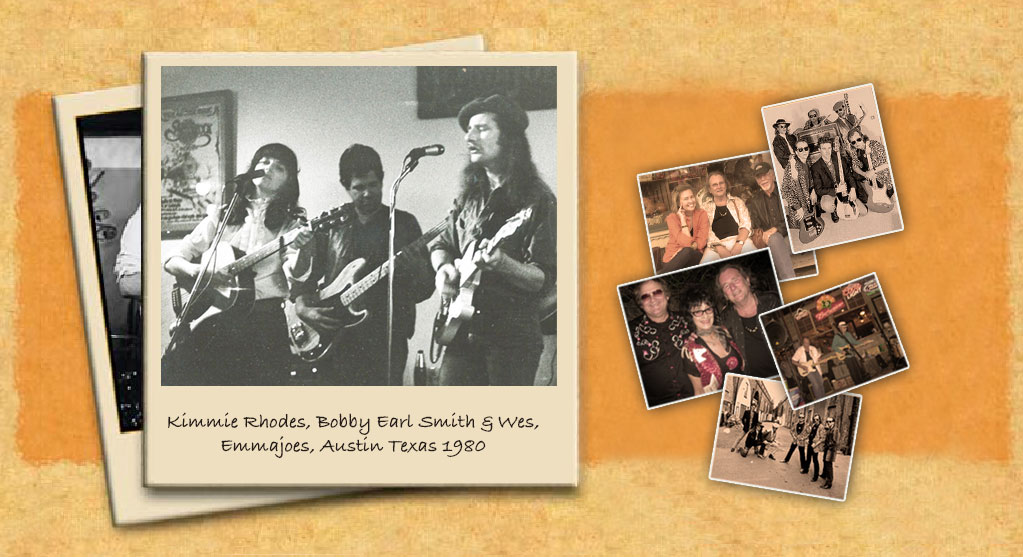
Although he is British, all sorts of Texan and Mexican influences can be found in the albums recorded by Wes McGhee, that supply the songs for a newly released double cd retrospective. I was privileged once to interview him in his Brighton home, in a room lit only by the fantastic juke box that dominated the room.
I wondered how, growing up in England, he had come under such influences. Had he, in fact, been so disenchanted with the British pop music scene that he had actively sought out American alternatives?
´I suspect there was possibly something restrictive about the scene, yeh, but I didn’t actively seek out this music. I sort of re-discovered it. I’d always listened to and loved the old Sun label artistes, and Buddy Holly. Particularly I loved all the sounds of Jerry lee Lewis B sides. I re-discovered all this by accident years later, when I was wandering across the States and stumbled into Austin, Texas where all these strands of music reconnected for me. Playing in Austin was interesting and sufficiently rewarding financially, so I was happy. I could have earned enough to survive playing in England but it wouldn’t have been as interesting. In fact, it was only in Texas, when I’d fallen in with a circle of musicians and learned to play the stuff, that I started to recognise in it strands of the music I’d listened to before.
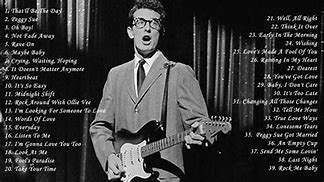
There were whole lines of it through Buddy Holly songs. I never studied these musical routes as such but each year I spent some time in The Middle East and came to recognise that even parts of that music had travelled through Spain, across to South America and up to Texas. Most of the musicians I played with spoke different languages so music was our only real means of communication!´
Even in English, the lyrics to some of McGhee’s own songs are difficult to understand. Indeed, the writer himself doesn’t understand the meaning behind the lyric of Bullfrog And The Crow but because of its humid, languid mood it found its way on to his first album, Long Nights And Banjo Music. This album marked the beginning of a long recording career and the end of a seven year period as a member of a British jazz band ! There was a grief and aggravation in that band’s relationship with its label, forcing him to sack the group members. Eventually, in response to the record company’s contractual demands for an album, Wes put a new band together. With a belligerence I suspect might be typical of him when crossed, he took the band into a studio and to the chagrin of the label, put together an album that was pure country; in essence, Long Nights and Banjo Music.
He enjoyed himself so much that the band began to gig together, but he was tied to the label for a further five years.
When another label began to show interest and invited Wes and his colleagues to record a similar album, Wes himself was so impressed by the final demo that, over the course of a few years, he invested in a sixteen track studio in his home in Golder’s Green. The songs recorded there became the basis of what eventually became his first two released albums, Long Night And Banjo Music and Airmail.
Fronting a band that included members who would later go on to play with The Penguin Café Orchestra or sing with The Flying Pickets led to that first album, released on the Terrapin label, being almost impossible to categorise. Wes thinks now that the first album suffered the dreaded symptoms of ‘first album disease’ that sees an artist use up all the material he’s ever written and produce the hell out of it.
However, other people have shared my own perhaps more objective view that here was some fine playing of a collection of songs worthy of attention. Although never officially released in the States, Long Nights And Banjo Music started the ball rolling for Wes McGhee
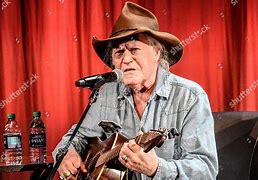
´People who knew I was a singer and a bit of a writer with a British album behind me came to see me and seemed totally amazed that I could play guitar,´ Wes recalled. ´It seems an awfully long time ago but in those days I’d be playing clubs over there, say like Emmajoes with a resident house band and different headliner each night. Back then, in Austin, there’d be a whole crowd of us, including people like The Jethro Brothers, Kimmie Rhodes, (the subject of posts in our Sidetracks & Detours archives) Nanci Griffith and Lyle Lovett. Even though they lived in Nashville, people like Townes (Van Zandt) and Guy (Clark) would come through, and I’d get the chance to watch people like Billy Joe Shaver and Richard Dobson. Until then, I’d probably been much more aware of the West Coast sound than of the honky-tonk stuff. It was nice the way I was accepted, though. Mexicans came up to tell me they enjoyed my Mexican flavoured songs, even though they hadn’t understood a word of them.´
When asked how he, as an outsider, has managed to evoke so well in his songs the spirit of the Lone Star state Wes explains that he was able to see the Texas Texans took for granted and points out that he has seen the roles reversed when visiting musicians have stayed at his Cricklewood home and seen around them architecture that Wes had overlooked all his life.
Whilst working in Texas during this period there was so much happening that Wes was ‘like a kid in a sweetshop’ especially when his second album further increased his profile. That first album had included soulful songs like Cowboys Don’t Cry, the edginess of Bullfrog And The Crow and the sheer celebration of Long Nights And Banjo Music and a drink or two.
Airmail, the second collection, furthered that drinking theme with Whisky is My Driver, a honky tonk knees up of a song – albeit written during a depressing period of McGhee’s life, ‘when every morning brought a problem and whisky the solution.’ Wes agrees with a theory I have long held, that sometimes only the finished song reveals to the writer precisely how he feels about the subject.
“Sure,” he says, “the subconscious comes out when you’re writing, and there are all sorts of wild theories about why that is, but I’d rather not know why.”
Airmail saw him feature pedal steel ace BJ Cole, who Wes describes as the best steel player there is and recalls him bringing Hank Wangford along to one of the sessions. Many of us who enjoy Wangford’s music know that there is a true love of country music behind his apparent mockery and Wes himself agrees that ‘in his own bizarre way’ Hank is as reverent towards the music as is Wes himself.
There was a set of new found friends featured on the third album, Landing Lights. The collection was recorded partly over here as a session for Capital Radio but over-dubs and new songs were later added in the States with the involvement of Kimmie Rhodes and her husband and mentor Joe Gracey.
Having purchased from Capital the tape of the session that featured vocal, guitar, bass and drums on Too High To Sing The Blues, the achingly exquisite (Used To Say) Train Time and Mailman, Wes was delighted to have the expertise of Gracey on the rest of the tracks.
´The guy was a legend,´ he says. ´He was a top radio dj and well respected for being the first to play Willie and Waylon and the boys on rock radio, but he got cancer of the throat and eventually had to lose his vocal cords. He adjusted about as well as could be, but there were times when he was sheer climbing the walls in frustration. Once he went out into the desert for several days with Robert Earl Smith, a respected songwriter, and got drunk. Seriously drunk ! But they came back and wrote a song about it. Now, Joe used a scratch pad to communicate but in the studio, if you were laying down a vocal track he would manage to convey precisely what he wanted from you. The man just had so much knowledge.´
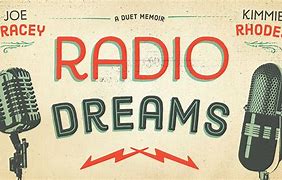
At the time of conducting this interview I had never met Joe Gracey but subsequently did so many times with Kimmie. He had an encyclopaedic memory of who played at which sessions on what albums. On first meeting him I had the usual stupid embarrassment of not knowing how to converse with him but the warmth that poured out of the man soon put me at ease.
Wes had a soft spot for that Landing Lights album.
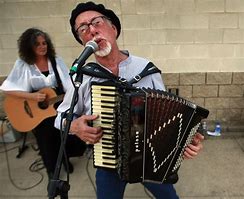
Insert photo of Ponty Bone “It was recorded with some of my closest friends – great musicians who were totally supportive with nothing to prove – like Kimmie, Joe and Ponty Bone,” he says. “I sometimes think the failing of British musicians to American musicians is not one of ability but of attitude. And I guess there isn’t enough British talent to allow us to be so supportive of one another.”
Wes had a particularly fond memory of my own favourite cut on the Neon and Dust album. The title track was a song that on first hearing had me develop a ‘schoolboy crush’ on Kimmie Rhodes. I still shiver every time I hear her sultry vocal on that track.
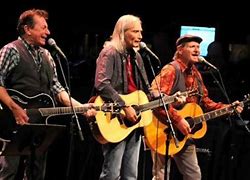
Joe Ely (left) Jimmie Dale Gilmore % butch Hancock (right)
On a night in Austin when there was to be a total eclipse of the moon, apparently, the magical and mysterious little riff that so elevates the songs was still just a murmur in McGhee’s mind Together with Kimmie and Joe and with Butch Hancock and Jimmie Dale Gilmore (of the wonderful, wonderful Flatlanders) he stood outside the studio to watch the phenomenon and see the earth black out the sun (or whatever it is that actually happens on these occasions; I should have paid more attention to The Sky At Night).
As soon as it became light again, the riff had taken shape and Wes and the band returned inside to record the Neon And Dust track. An obvious example of lunatics at work !
Now, more than a quarter of a century later we have this lovingly compiled retrospective collection. That quirky dialogue between Bullfrog And The Crow can’t be heard here, though, and I think I am right in saying it can only be heard when a diamond stylus scratches its way through the peaks and troughs of a vinyl record, but the omission of even such a great song does not detract from the value of a three album set that, by simply allowing us to hear that conductor call Train Time, is worth the price of the ticket.
Meanwhile, even as this piece is being written we hear from Mr, McGhee´s work environment at TWANG TOWERS that he and the gentlemen of his orchestra have begun recordings for a NEW as yet untitled 2CD set. of thirty, yes thirty brand new songs.
Last summer, Wes had a fall. Something to do with bad, bad whisky …maybe…anyway he fell on his head and left most of the contents (brain included) over the front steps of Twang Towers. After the hospital had bandaged up his head to make Wes look as ridiculous as possible (he has wisely excluded photographic evidence from his web site) and sent him home he started to write songs and more songs and then a few more until he had more than enough for a 2CD set. Now, any normal person would probably do one album and then put their feet up for a while but he decided to do the lot!
CD1 will have a mellowish feel with a lot of Spanish guitar, tres Cubana, etc, while CD2 is out and out country rock and roll and blooze.
It should be release it later in 2020.
As I wait for that I´ll reminisce whilst posting this and think of Used To Say Train Time as one of the three great railroad songs, along with Texas 1942 by Guy Clark and The Train They Call The City Of New Orleans as performed by Steve Goodman. I will recall incredible concerts when seeing Wes playing somewhere in the North East (Buddies, maybe?) and, of course, that incredible Brighton gig. I remember interviewing him and and Kimmie Rhodes in York, and echoing loudly through the haze of all those memories are great songs like Neon And Dust and Bullfrog And The Crow.
Check out his official web site at https://www.wesmcghee.com/

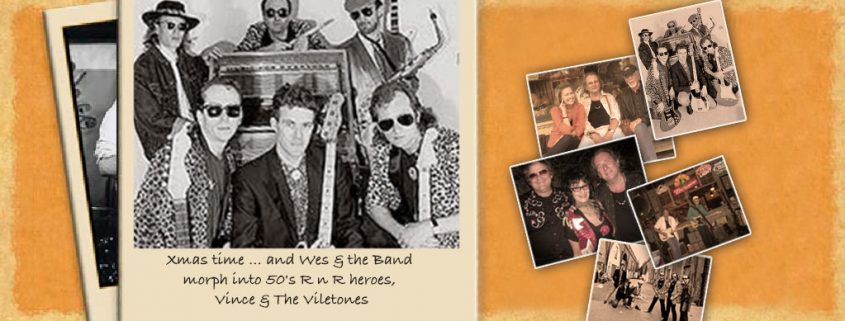


Leave a Reply
Want to join the discussion?Feel free to contribute!